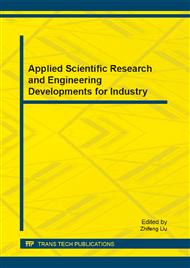p.1394
p.1398
p.1402
p.1407
p.1411
p.1415
p.1419
p.1425
p.1429
ANFIS Model for Time Series Prediction
Abstract:
This paper describes an architecture of ANFIS (adaptive network based fuzzy inference system), to the prediction of chaotic time series, where the goal is to minimize the prediction error. We consider the stock data as the time series. This paper focuses on how the stock data affect the prediction performance. In the experiments we changed the number of data as input of the ANFIS model, the type of membership functions and the desired goal error, thereby increasing the complexity of the training.
Info:
Periodical:
Pages:
1411-1414
Citation:
Online since:
August 2013
Authors:
Keywords:
Price:
Сopyright:
© 2013 Trans Tech Publications Ltd. All Rights Reserved
Share:
Citation:


